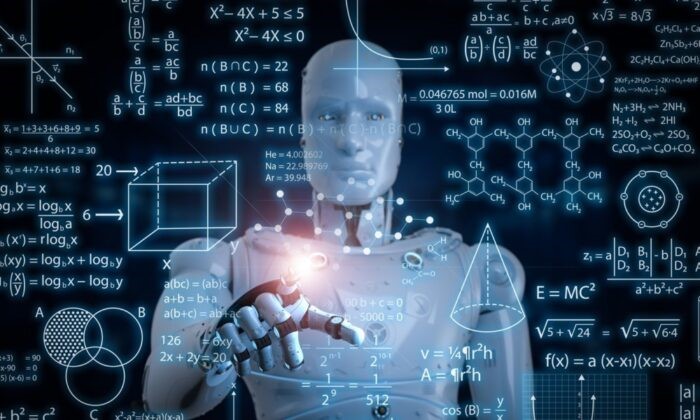Using Big Data in Healthcare: Applications, Benefits & Challenges

Overview of Big Data in Healthcare
We currently reside in the era of big data, where extensive amount of information are generated and collected on a daily basis. Within the healthcare industry, this surge in data offers substantial opportunities to extract insights that have the potential to enhance patient outcomes and, in some cases, save lives. With wearables monitoring our vital signs in real-time and sophisticated data analytics scrutinising patient records, the healthcare sector is undergoing a remarkable revolution facilitated by big data.
By the year 2025, global estimates indicate that a staggering 463 exabytes of data will be generated daily. While comprehending the overall volume of data in the world can be challenging, one illustrative comparison is that the current digital universe, with 44 zettabytes of data, is equivalent to 40 times more bytes than the number of stars in the observable universe. While not all of this new data requires long-term storage, experts anticipate that approximately 7.5 zettabytes of data will necessitate a permanent repository in 2025, marking a substantial 581% increase from the 1.1 zettabytes recorded in 2019.
Big Data Applications Used in HealthCare
Big data plays a crucial role in transforming the healthcare industry, bringing about significant improvements in various aspects. Here are some key points highlighting the importance and significance of big data in healthcare:
Predictive Analytics and Disease Prevention:
Big data enables the analysis of vast datasets to predict disease outbreaks, identify high-risk populations, and implement preventive measures, contributing to proactive healthcare interventions.
Personalized Medicine:
Through the analysis of individual patient data, including genetics and treatment responses, big data facilitates the development of personalized treatment plans, tailoring medical interventions to the specific needs of each patient.
Clinical Decision Support:
Big data tools provide healthcare professionals with comprehensive patient information, aiding in more informed decision-making. This enhances the accuracy of diagnoses and the selection of appropriate treatment strategies.
Population Health Management:
Big data is employed to analyze population health trends, allowing healthcare providers to identify at-risk populations and implement targeted interventions. This approach contributes to improved overall community health.
Drug Discovery and Development:
Big data analytics accelerates drug discovery by processing vast datasets related to molecular biology, genetics, and clinical trials. This aids researchers in identifying potential drug candidates and streamlining the drug development process.
Remote Patient Monitoring:
Big data facilitates remote monitoring of patients with chronic conditions through wearable devices and sensors. Real-time data tracking enables early intervention, reducing hospitalizations and improving patient outcomes.
Operational Efficiency and Cost Reduction:
Healthcare organizations use big data to optimize operational processes, allocate resources efficiently, and reduce costs. This includes streamlining workflows, improving inventory management, and enhancing overall organizational efficiency.
Real-Time Analytics for Emergency Response:
In emergency situations or disease outbreaks, real-time analytics on big data assist in quick decision-making. This includes resource allocation, tracking the spread of diseases, and coordinating emergency responses.
Patient Engagement and Empowerment:
Big data applications empower patients by providing access to their health data, encouraging self-monitoring, and facilitating active participation in healthcare decisions. This patient-centric approach enhances overall patient engagement and satisfaction.
Big Data Analytics Jobs In HealthCare in India
- Health Informatics Specialist
A Health Informatics Specialist is a professional whose career revolves around the capture, transmission, and utilization of health information across various healthcare settings. This role adopts an interdisciplinary approach, combining expertise in information technology with skills in communication and healthcare. The Health Informatics Specialist plays a crucial role in optimizing the management and application of health-related data, contributing to more efficient and effective healthcare processes.
- Health Data Engineer
Data engineering plays a vital role in supporting public health initiatives by analyzing population health data, tracking disease trends, and detecting outbreaks. In the realm of clinical trials and research, effective data management is critical for ensuring compliance with regulations and achieving successful outcomes. The concept of interoperability facilitates the seamless sharing of patient data between different healthcare systems, contributing to a more integrated and collaborative approach to healthcare information exchange.
- Healthcare Data Analyst
The primary responsibility of a healthcare data analyst is to collect, study, and manage information gathered from various sources. Given that medical and healthcare facilities typically deal with substantial amounts of data, they enlist the services of these analysts to thoroughly examine the information and identify areas that may require attention or improvement.
- Healthcare Statistician
Statistics play a crucial role in the thoughtful allocation of medical resources. By employing statistical tools, it becomes possible to assess and determine the optimal combination of goods and services that should be produced, as well as the most effective allocation of resources for their production. Health care statistics also have a direct impact on production efficiency within the healthcare sector.
Big Data Analytics Salary in HealthCare in India
Health Informatics Specialist Salary in India
As of the available data, the average salary for a Health Informatics Specialist in India is reported to be ₹7,00,000 per year. In addition to the base salary, the average additional cash compensation for a Health Informatics Specialist is ₹50,000. The reported range for additional cash compensation is from ₹50,000 to ₹50,000. These salary estimates are based on 1 salary submitted anonymously to Glassdoor by Health Informatics Specialist employees in India.
It’s important to note that these figures are based on a limited number of reported salaries and may not represent the entire range of salaries for Health Informatics Specialists in India. Salaries can vary based on factors such as experience, skills, location, and the specific employer.
Data Engineer Salary in Healthcare in India
As of the latest available data, the salary range for Data Engineers in India is approximately ₹5.0 Lakhs to ₹19.0 Lakhs per year. The average annual salary for Data Engineers in India is reported to be around ₹12.2 Lakhs. These figures are based on information gathered from 538 recent salary reports from professionals working in the field of data engineering.
It’s important to note that these salary estimates are averages and that individual salaries may vary based on factors such as experience, skills, location, and the specific industry or company. Additionally, salary ranges can change over time due to market conditions and demand for data engineering expertise.
HealthCare Data Analyst Salary in India
As of the latest available data, the salary range for Healthcare Data Analysts in India is approximately ₹1.2 Lakhs to ₹9.5 Lakhs per year. The average annual salary for Healthcare Data Analysts in India is reported to be around ₹6.7 Lakhs. These salary estimates are based on information derived from 81 recent salary reports submitted by Healthcare Data Analysts.
It’s important to note that these figures represent averages, and individual salaries may vary based on factors such as experience, skills, geographic location, and the employer. Additionally, salary ranges can be influenced by the demand for specific expertise in healthcare data analysis.
Statistician Salary in Healthcare / Pharma in India
As of the latest available data, the salary range for Statisticians in India is approximately ₹0.4 Lakhs to ₹13.5 Lakhs per year. The average annual salary for Statisticians in India is reported to be around ₹13.4 Lakhs. These salary estimates are based on information derived from 60 recent salary reports submitted by individuals working as Statisticians.
It’s important to note that these figures represent averages, and individual salaries may vary based on factors such as experience, skills, geographic location, and the specific employer or industry. The wide salary range reflects the diversity in roles and responsibilities within the field of statistics.
Conclusion
In conclusion, the benefits of big data in healthcare are vast and transformative, begining in an era of improved patient care, personalised medicine, and enhanced operational efficiency.Freelancers specialising in big data analytics in healthcare can significantly boost their careers by taking advantage on the growing demand for data-driven insights in the industry. With the increasing adoption of digital health records, wearables, and other healthcare technologies, the need for skilled professionals who can extract meaningful insights from large datasets has surged.
Get your data results fast and accelerate your business performance with the insights you need today.



